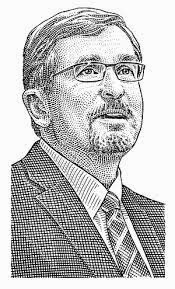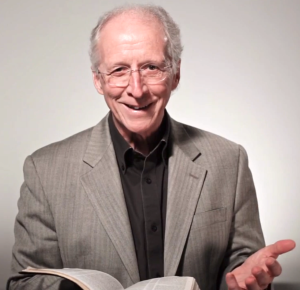Article: Calvinism Is Not Hyper-Calvinism by Josh Buice (original source Iron Sharpens Iron, on the subject of hyper-Calvinism. It caused me to think about this subject and the importance of using vocabulary properly. As the father of a type 1 diabetic, I spend much of my time explaining to people in random conversations that type 1 diabetes (T1D) is not the same thing as type 2 diabetes (T2D). Therefore, let me begin by clearly stating this point—Calvinism is not hyper-Calvinism. When I engage in conversation with people who want to discuss Calvinism, I’m happy to do so, but I want to be sure that we’re using the same dictionary.
What is Calvinism?
Calvinism is a system of theology that seeks to systemize the teachings of Scripture on the subject of salvation. What is the relationship between the absolute sovereignty of God and the responsibility of man? This is the central issue of Calvinism. It takes the name of the Reformer John Calvin, who was a passionate preacher of Scripture in the Sixteenth Century in Geneva, Switzerland. During the Protestant Reformation, the Reformers were seeking to unleash the true gospel from the intense strangle hold of the Roman Catholic Church. It was through this period of time that the Bible was being printed in the common language of the people and was simultaneously being proclaimed expositionally.
A group of followers of Jacobus Arminius who studied under Theodore Beza (a disciple of John Calvin) drafted a document known as the Remonstrance. It was a detailed refutation of the sovereignty of God in salvation. It elevated the free will of man above the sovereign initiative and power of God. These people were known as Arminians. Their doctrine would eventually become known as Arminianism.
An official meeting was held known as the Synod of Dordt in 1619 in order to respond to the submission of the Arminians in their Remonstrance. The overall conclusion was that the Remonstrance was incorrect and that the biblical view of salvation teaches that God is the author and finisher of saving grace. The “five points” of Calvinism came as an answer to the unscriptural five points authored by the Arminians in 1610 me eventually were organized with an acronym T.U.L.I.P. To explain the key teachings.
Historical Timeline Surrounding the Doctrines Known as “Calvinism”
440 Bishop Leo of Rome becomes “Bishop of Bishops.” Asserts Primacy of Rome over the Church; Dark Ages Begin.
1382 John Wycliffe translates Bible.
1384 John Wycliffe martyred by Rome.
1439 (Approximate) Printing press invented.
1517 Luther Nails 95 Theses to the Wittenberg Church Door; The Reformation begins (Post Tenebras Lux).
1522 Luther’s New Testament.
1526 Tyndale’s New Testament.
1536 William Tyndale Martyred by Rome; Institutes of the Christian Religion (John Calvin).
1553 Bloody Mary becomes queen of England and restores power to the RCC. During
Mary’s reign, more than 300 Protestants are burned. John Rogers (publisher of the Matthew’s Bible) is the first to be burned at the stake. Many Protestants flee from England to Geneva.
1559 Calvin opens his college in Geneva. Within five years the college would have over 1500 students.
1560 The Geneva Bible is printed. It was the first Bible with verse references and sold over one million copies between 1560 and 1640. John Foxe publishes Foxe’s book of Martyrs.
1561 Belgic Confession (Guido de Bres).
1563 Heidelberg Catechism (Zacharias Ursinus and Caspar Olevianus).
1564 John Calvin Dies.
1571 The Synod of Emden (birth of the Dutch Reformed Church).
1609 Jacobus Arminius dies.
1610 Remonstrance (Arminians or Remonstrants led by Johannes Uytenbogaert).
1611 Counter-Remonstrance (led by Pieter Platevoet).
1618 Opening of the Synod of Dort & Opinions of the Remonstrants.
1619 Synod Dismisses the Arminians & Adopts the Canons (AKA – 5-Points of Calvinism).
The system known as Calvinism is really five counter points to Arminianism. Years later, Wesley adopted the Arminian position and thus the Methodist movement was born. Although there are certain exceptions, historically, Baptists and Presbyterians have been more Calvinistic and opposed to the doctrines of Arminianism while the Methodists and groups such as the Assemblies of God have embraced the doctrines known as Arminianism. Today, Calvinism is sometimes known by titles such as Reformed theology and the doctrines of grace.
What is Hyper-Calvinism?
Hyper-Calvinism is not a term used for those who are overly passionate about Calvinism. That’s actually what we refer to as “cage stage Calvinism.” When understood properly, hyper-Calvinism is a technical term for an extreme and unbiblical view that rejects any need for Christians to engage in missions and evangelism. Simply put, hyper-Calvinists forbid the preaching of the gospel and the offer of salvation to the non-elect. Such people believe that God has chosen people in Christ in eternity past and will bring about His results without the help of His people. Hyper-Calvinism is heresy and must be rejected.
To illustrate the views of hyper-Calvinism, consider what happened during a pastors’ meeting years ago. A man named William Carey wanted to organize an effort to get the gospel to what he called heathen nations. Carey stood up and addressed the crowd by requesting that they discuss “the duty of Christians to attempt to spread the gospel among the heathen nations.” Mr. Ryland, and older minister, exclaimed loudly, “Sit down, young man! When God pleases to convert the heathen, He will do it without your aid or mine.” Carey did not stop. His allegiance was to Christ – not Mr. Ryland. Carey went to India and proclaimed the good news of Christ.
Carey would write a book titled – An Enquiry into the Obligations of Christians, to Use Means for the Conversion of Heathens. He would argue his case that we should use means to reach heathens – contrary to what Mr. Ryland – the elder minister said in his meeting as he scolded the young Carey for bringing up the subject.
William Carey, in his Enquiry, wrote: “It seems as if many thought the commission was sufficiently put in execution by what the apostles and others have done; that we have enough to do to attend to the salvation of our own countrymen; and that, if God intends the salvation of the heathen, he will some way or other bring them to the gospel, or the gospel to them. It is thus that multitudes sit at ease, and give themselves no concern about the far greater part of their fellow sinners, who to this day, are lost in ignorance and idolatry.”
It must be pointed out that William Carey was a Calvinist. Although William Carey had only a grammar school education – he would shake the world with the gospel. Carey once preached a sermon where he stated – “Expect Great Things – Attempt Great Things.” It was later added – “Expect Great Things From God – Attempt Great Things For God.” That’s exactly what he did as he proclaimed the true gospel of King Jesus. India would never be the same. The world would never be the same. The way the church viewed missions would never be the same – because of this Christ-exalting Calvinist that has become known to us as the “father of modern missions.”
What’s the Difference?
The difference between Calvinism and hyper-Calvinism is the distance between heaven and hell. Calvinism is full of life and passion for God and desires to make God’s glory shine among the nations. Hyper-Calvinism is lifeless heresy that damns people to hell, kills evangelism, and ruins churches. Take a good look at the missionary movement of church history and you will see Calvinists leading the charge. Men like William Carey, Adoniram Judson, and Charles Spurgeon were all Calvinists. Many people overlook the missionary heart of John Calvin himself. He trained and sent out many missionaries who passionately preached the truth. Many of these men were martyred for their faith.
The next time you’re talking to someone with type 1 diabetes, just remember—it’s not the same thing as type 2 diabetes. Also, the next time you’re talking to a Calvinist, remember, Calvinism is not hyper-Calvinism. To call faithful Calvinistic Christians hyper-Calvinists is to consign a massive number of people from church history to the flames of hell (including people like Charles Spurgeon, William Carey, Martin Luther, Andrew Fuller, Adoniram Judson, and George Whitefield). What’s the difference between Calvinism and hyper-Calvinism? Calvinism proclaims the true gospel while hyper-Calvinism proclaims no gospel at all.





